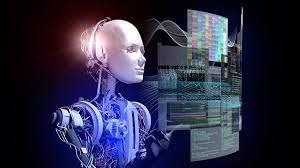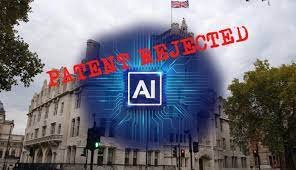
In a momentous epoch for the convergence of artificial intelligence (AI) and patent jurisprudence, the UK Supreme Court has definitively decreed that AI shall not be acknowledged as an originator in patent applications. The pronouncement, stemming from the high-profile DABUS case, sends reverberations throughout legal, technological, and innovative domains.
The DABUS Case Unraveled
The legal theatrics transpired as Stephen Thaler, a luminary in the AI sphere, endeavored to procure two patents in the UK for contrivances ascribed to his AI entity, DABUS. The pivotal inquiry in this saga was whether AI, as a non-human entity, could assume the mantle of an inventor under prevailing patent statutes.
Legal Battle Culminates in Supreme Court Decision After an extended legal fracas that captivated the scrutiny of legal scholars, technophiles, and industry savants alike, the UK Supreme Court delivered its epoch-making verdict on December 20, 2023. This adjudication establishes a paradigm that cascades profound ramifications for the evolving milieu of intellectual property.
AI Patent Ruling: Breaking Down the Decision
The court’s edict was perspicuous: AI systems, irrespective of their proclivity for ingenuity and originality, shall not be endowed with patent proprietorship. This ruling challenges orthodox precepts of inventorship, compelling legal scholars to revisit and reconceptualize existing frameworks in the maelstrom of swift technological advancement.
Key Highlights of the UK Supreme Court Decision

- Non-Human Inventorship: The court expressly iterated that AI, devoid of legal personhood, cannot usurp the role of an inventor in patent applications. This marks a departure from conventional paradigms of inventorship anchored in human agency.
- Implications for AI-Generated Inventions: The verdict raises poignant inquiries regarding the status and acknowledgment of AI-fostered inventions. As AI systems progressively contribute to innovation, legal frameworks must metamorphose to recognize and shield these manifestations.
- Challenges to Patent Law: The ruling posits challenges to patent laws on a global scale, impelling jurisdictions to reevaluate and refine their methodologies to accommodate the singular nature of AI-emanated creativity.
Industry Reactions and Stakeholder Perspectives
The verdict has elicited a kaleidoscope of responses from sundry stakeholders. Legal pundits extol the limpidity engendered by the ruling, underscoring the exigency for legal frameworks to evolve in tandem with technological strides. Conversely, tech trailblazers express trepidations about potential encumbrances on AI-driven advancement.
International Ramifications
While the pronouncement emanates from the UK, its reverberations resonate globally. The international cognoscenti observe with avid interest as jurisdictions worldwide grapple with analogous quandaries pertaining to AI and patent legislation. The imperative for a harmonized global framework becomes conspicuous in light of the transnational scope of AI innovation.
Implications for AI and Patent Law
The repercussions of the verdict are profound. The ruling disrupts established norms and mandates a reevaluation of patent laws to accommodate the unique essence of AI-propelled creativity. It thrusts the legal apparatus into uncharted territory, prompting a reassessment of how intellectual property rights interlace with swiftly progressing AI technology.
Legal Frameworks in the Age of AI Creativity
The judgment underscores the exigency for legal frameworks that can adapt to the dynamic expanse of AI innovation. As the legal fraternity grapples with the intricacies of AI-generated inventions, the necessity for nuanced and flexible legal architectures becomes increasingly conspicuous.
Future Challenges and Opportunities
As the legal terrain undergoes a metamorphic shift, a myriad of challenges and opportunities surface. Innovators, policymakers, and legal sages must collaboratively traverse the trajectory ahead, ensuring that the legal frameworks governing AI strike an intricate balance between fostering innovation and safeguarding intellectual property rights.
Navigating the Path Ahead

The UK Supreme Court’s adjudication to preclude AI from being denominated as an inventor in patent applications marks a pivotal juncture in the ongoing discourse concerning AI and intellectual property. The ruling accentuates the need for a legal framework capable of adapting to the breakneck pace of technological progress. As the global collective grapples with the implications of AI on patent law, synergistic endeavors are imperative to sculpt a future where innovation and legal clarity coalesce harmoniously.











Comments 3